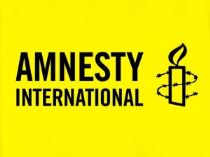
DAVAO CITY (Mindanao Examiner / Oct. 15, 2012) – In commemoration of the National Indigenous Peoples Month, Amnesty International Philippines on Monday joined leaders of indigenous peoples in their call for justice to the continuing attacks and killings against tribe members, especially in pursuit of their struggle for self-determination and in defense of their territories.
In a statement sent to the regional newspaper Mindanao Examiner, the Amnesty International said its members in the cities of Cagayan de Oro, Davao, Pagadian and Zamboanga along with tribal leaders from Zamboanga del Sur’s Bayog town and Agusan del Sur held simultaneous press conferences in their respective areas.
“Pursuit for profits in today’s corporate led globalization has led to greater demand for mineral and other natural resources resulting in global land and resource grabs specially in indigenous peoples territories. This situation has led to indigenous people’s communities, especially their leaders, to heightened advocacy and activism in defense of their land, resources, culture, identity and self-determination.”
“It is in this situation of indigenous people’s resistance and activism where IP leaders and human rights defenders get targeted for harassment, unlawful arrests, enforced disappearances and even killings,” said Ritz Lee Santos III, chairperson of Amnesty International Philippines, during press conference in Davao City.
Amnesty International said it is concerned about the enormous impact of ‘extractive’ corporations on the rights of indigenous peoples and their communities. It also emphasized the government’s responsibility to protect ancestral lands from corporate exploitation and to fully enforce domestic regulations and mechanisms for redress against the devastating effect mining activities have on the indigenous peoples, their lands and lives.
“Amnesty International recognizes that indigenous people’s rights have been recognized in international and national laws during the recent years however, widespread violations of IP rights still occur due to continued discrimination, conflicting state policies and programs, and the entry of corporations to ancestral domains,” said Rodolfo Francis Marcial, Amnesty International Philippines Board Member, in another press conference in Zamboanga City.
It said it is witness to continuing harassments, extra-judicial killings and forced disappearance perpetrated against indigenous peoples and human rights defenders in their struggle to protect tribal territories and ancestral domains from plantations, mining, logging and energy projects of companies whether foreign or local.
“As seen in the cases of the disappearance of James Balao in the Cordillera, the ambush of Timuay Locenio Manda in the Zamboanga Peninsula which resulted in the death of his son Jordan, and the recent killing of tribal leader Gilbert Paborado in Misamis Oriental province. And indigenous peoples’ leaders and human rights defenders continue to be targeted for attacks.”
“We call on the Aquino government to protect indigenous people’s leaders and rights defenders at grave risk to attacks and violations, and work to provide justice for all victims of violations of indigenous peoples rights,” said Romel Cardenas De Vera, Amnesty International Philippines Human Rights Officer, at the press conference in Cagayan de Oro City.
“Despite this so called “progress” over the last decade on indigenous people rights, we continue to live in hardship and danger due to the failure of the government to protect, promote and uphold our human rights,” said Subanen Victoria Cajandig, Amnesty International Philippine Board Member, in a news conference in Pagadian City.
“President Aquino must direct the Philippine National Police, the National Commission on Indigenous Peoples, and the Department of Interior and Local Government to investigate any cases of EJK, forced disappearance and harassment in order to bring the perpetrators to justice. The DILG must work with the Commission on Human Rights Regional Offices to conduct investigations on the reported threats, as well as attempted and actual attacks against IP HR Defenders,” she said.
Amnesty International said indigenous peoples will continue to be uprooted from their ancestral lands and territories as a consequence of discriminatory government policies and practices. It said social marginalization and legal discrimination place IPs at risk of a wide range of human rights violations.

